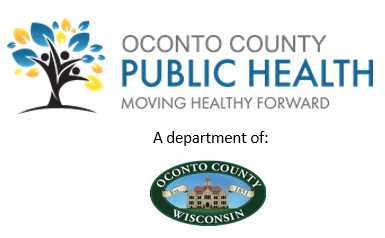DHS Continues to Make COVID-19 Treatment Easily Available as Cases Climb
Free COVID-19 treatment telehealth services extended through April to quickly connect Wisconsinites to care
The Wisconsin Department of Health Services’ (DHS) most recent weekly Respiratory Virus Surveillance Report shows that COVID-19 activity is continuing to increase, sending more people to emergency rooms, especially among people aged 65 and older. The state’s Wastewater Monitoring Program, which tests samples of wastewater across the state has shown significant increases in COVID-19 activity statewide. Fortunately, treatments for COVID-19 are widely available, and the state’s free telehealth service has been extended through April to connect Wisconsinite to care from the comfort of their own homes.
“If you are at high risk of getting really sick from COVID-19, it’s important to consider treatment as soon as possible,” said DHS Chief Medical Officer for the Bureau of Communicable Diseases and State Epidemiologist Dr. Ryan Westergaard. “COVID-19 antiviral treatments must be taken within five days of symptoms starting, and telehealth can help get people started on oral antivirals sooner within the five-day window after symptom onset, which will help save lives.”
DHS launched Wisconsin’s COVID-19 treatment telehealth service last November, and in its first year, the service completed 6,008 consults with most patients waiting less than five minutes to speak with a licensed health care professional. Patients aged 60 and older, who are typically at greater risk of severe illness, accounted for nearly half of all visits, 48%.
People who test positive for COVID-19, whether using an at-home test or a test performed by a health care provider, may be at higher risk for severe complications and are encouraged to speak to a doctor about whether COVID-19 antiviral treatments are right for them.
The COVID-19 treatment telehealth service is available to adults statewide, accessible through internet and telephone. Consultations are available in 17 languages and are available seven days a week from 8 a.m. to 8 p.m. If eligible, a clinician can prescribe an oral antiviral pill that cab be filled at over 600 pharmacies in the state or have it mailed overnight to your residence.
DHS will continue to offer the telehealth service through April 10, 2024. After this date, patients should seek COVID-19 care through their primary care provider. DHS advises anyone who lacks insurance or is otherwise blocked from conventional care options to contact one of Wisconsin’s free or low-cost health clinics. Individuals and families without insurance are also encouraged to take a 5-minute survey to see if state-sponsored health care coverage is right for them.
This treatment is not a substitute for vaccination, which can prevent serious illness, hospitalization, and death. Everyone 6 months and older is eligible and recommended to receive the updated COVID-19 vaccine. Data from the DHS COVID-19 Vaccine Dashboard show only 12% of Wisconsinites have received an updated COVID-19 vaccine. COVID-19 vaccines are safe, effective, and available across Wisconsin. People who are uninsured or underinsured may be eligible for COVID 19 vaccines at no cost through the bridge access program.
In addition to getting recommended vaccines, DHS encourages Wisconsinites to prevent respiratory illnesses by washing your hands regularly, cleaning surfaces, and taking good care of your body. This also includes getting good sleep, drinking plenty of water, managing stress, and exercising regularly.
Learn more about COVID-19 treatments. Find COVID-19 vaccine near you at Vaccines.gov.
